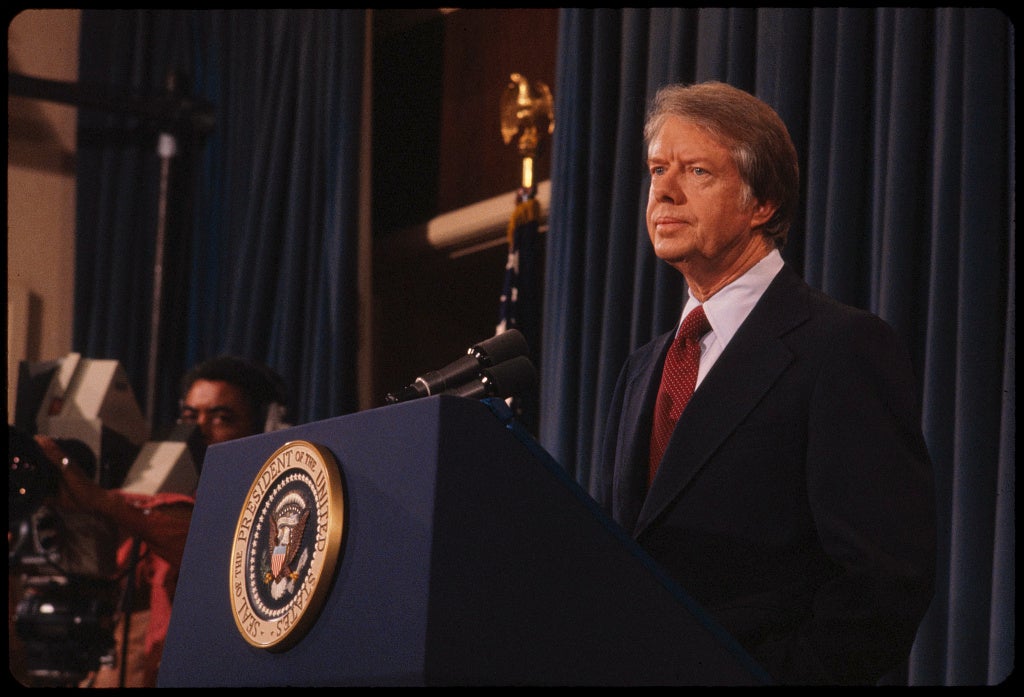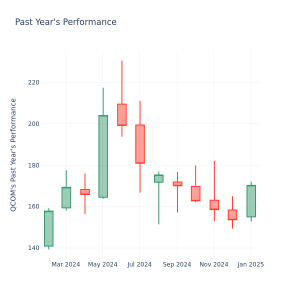
President Jimmy Carter, who died at his home on Sunday at age 100, brought a political outsider status to Washington, D.C. during a period of immense distrust in government.
There was the Watergate scandal, high inflation, mass protests due to the Vietnam War, high government spending and loose monetary policy.
Carter, a Georgian native who won the White House in 1976, inherited an economy reeling from a recession and subsequent inflation proved disastrous for his 1980 reelection bid.
According to the Federal Reserve Bank of St. Louis, inflation neared 6% in 1976 before Carter’s presidency began.
Carter then presided over 6.5%, 7.5%, 11.3% and 13.5% inflation in successive years. Economists consider 2% to be a healthy rate of inflation.
“In the last 10 years, in our attempts to protect ourselves from inflation, we’ve developed attitudes and habits that actually keep inflation going once it has begun,” the 39th U.S. President said in 1978.
“Most companies raise their prices because they expect costs to rise. Unions call for large wage settlements because they expect it to happen, and once it’s started, wages and prices chase each other up and up. It’s like a crowd standing at a football stadium. No one can see any better than when everyone is sitting down, but no one is willing to be the first to sit down.”
In 1979, Carter nominated Paul Volcker, then the president of the Federal Reserve Bank of New York, to chair the Federal Reserve. Volcker hawkishly shaped monetary policy by hiking the federal funds rate from 10% to nearly 18%.
The economy then entered a recession as the unemployment rate neared 8%.
That year, Carter was also dealing with the Iranian Revolution. From April 1979 to November 1980, the price of oil spiked over 130%, per the Energy Information Administration. This worsened inflation and created “stagflation,” an increase in prices and unemployment due to a negative supply shock.
Carter faced a primary challenge from Massachusetts Sen. Ted Kennedy, which he won decisively. But he fared much worse in the general election, suffering a landslide loss to then-California Governor Ronald Reagan. Reagan, a Republican, carried 44 states and won the popular vote by nearly 10%.
Volcker’s monetary policy and the induced recession did not lend Carter any electoral help. Volcker’s rate hikes continued during the Reagan administration. They went as high as 21% leading to a prolonged recession in 1981 and 1982.
Still, economists credit Volcker for the historic disinflation and end of high inflation expectations. Inflation remained below 6%, usually hovering around 2%, for several decades following the 1980s.
Historians have increasingly reevaluated Carter’s presidency. Today, they acknowledge the long-term significance of his decisions despite his administration’s unpopularity.
Carter’s appointing of Volcker as Fed chair was politically costly but is considered a crucial step in curbing historic inflation.
Also Read:
Market News and Data brought to you by Benzinga APIs
© 2024 Benzinga.com. Benzinga does not provide investment advice. All rights reserved.



